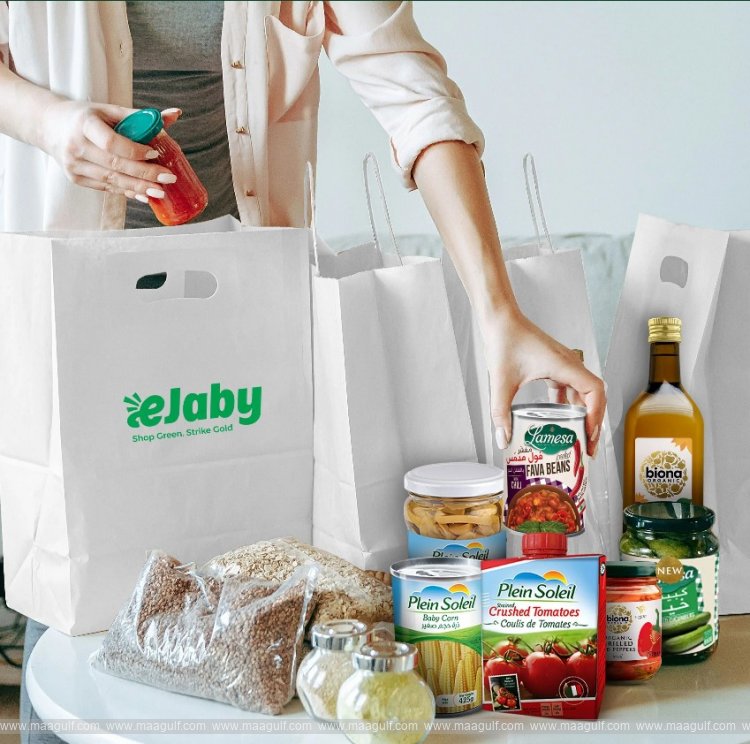Tips for a More Sustainable Ramadan: Reducing Excess and Shopping Mindfully
- February 28, 2025
Ramadan is a time for reflection, gratitude, and giving—but it is also a period where consumption tends to increase. With large Iftar spreads and increased shopping, households often end up buying more than they need. The UAE generates nearly 197kg of food waste per person annually, with a significant increase during Ramadan. By adopting a few mindful habits, families can celebrate the holy month while minimising surplus and making thoughtful purchasing decisions. As we move toward a more conscious approach to Ramadan, Menna Shahin, co-founder of eJaby, a UAE e-commerce platform focused on sustainable shopping and positive shopping practices, shares practical ways to embrace sustainability this season:
1. Plan Your Purchases Thoughtfully
Before heading to the store or placing an order online, create a plan, whether it be for your meals, gifts for friends and family, or household products. This ensures you buy only what you need, reducing the risk of surplus. Consider ingredients and products that can be used in multiple ways to maximise utility.
2. Buy in the Right Quantities
Opt for bulk shopping when it makes sense—such as staple items like rice, flour, and lentils—but avoid over-purchasing perishable goods. Similarly, when shopping for gifts, choose meaningful, high quality items that are useful and long lasting rather than impulse buys that may go to waste. Many retailers now offer flexible pack sizes, so choose wisely based on your needs.
3. Store Food and Other Items Properly to Extend Their Use
Proper storage can significantly extend the shelf life of fresh produce, dairy, and meats. Keep fruits and vegetables in breathable bags, store dairy at a consistent cool temperature, and freeze extra portions of cooked meals for later use. For household items and gifts, store them in a way that prevents damage and increases longevity.
4. Get Creative with Leftovers and Unused Items
Transform surplus food into new dishes instead of discarding it. Leftover roasted vegetables can be blended into soups, while extra rice can be repurposed into delicious rice puddings or stir-fries for Suhoor. For non-food items, consider repurposing or upcycling old decorations, clothing or unused gifts instead of discarding them.
5. Choose Sustainable Products
Opt for organic or responsibly sourced products when possible. Small choices, such as selecting products with minimal packaging or choosing items from suppliers that promote sustainability, can make a significant difference in reducing excess.
6. Be Mindful of Household Essentials
Beyond food, consider sustainability in household purchases. Eco-friendly cleaning products, reusable storage solutions, and minimal-packaging items can help reduce environmental impact while keeping homes Ramadan-ready. Instead of disposable decorations, opt for reusable and biodegradable options to celebrate in an eco-conscious way.
7. Support Smart Shopping Platforms
Online platforms that prioritise efficient inventory management and minimise surplus offer an easy way to shop more sustainably. Some retailers, like eJaby, connect consumers directly to suppliers, ensuring fresh, high-quality products while preventing overstock from being discarded, including food, beauty products and household items.
In line with the spirit of a sustainable Ramadan, homegrown platform eJaby is launching a community-driven social media initiative to encourage people to reflect on their environmental impact. Starting today, February 20th, individuals can share a post or reel about what they do to help the environment, tagging eJaby for a chance to win rewards. The initiative aims to inspire simple yet meaningful actions, such as reducing waste, repurposing leftovers, and making mindful purchases. Winners will be announced on February 29th, with the top entry receiving an AED 5,000 eJaby voucher and five others winning AED 1,000 vouchers each.
By incorporating these sustainable practices, families can make Ramadan a more mindful and responsible celebration. Small changes in shopping, meal planning, gift-giving, and household management can collectively reduce excess, minimise waste, and encourage long-term habits that benefit both the environment and the community.
తాజా వార్తలు
- భారత్కు అమెరికా కొత్త రాయబారిగా సెర్గియో గోర్ నియామకం
- ఇడాహోలో ఖతార్ ఎయిర్ ఫోర్స్.. అమెరికాతో ఒప్పందం..!!
- స్పేస్ సైన్స్.. అమెరికాలో 267 మంది సౌదీ స్టూడెంట్స్..!!
- ఓవర్టేకింగ్, లేన్ స్కిప్పింగ్.. డ్రోన్లతో ట్రాఫిక్ పర్యవేక్షణ..!!
- అలెర్ట్: ఫుజైరాలో భారీ వర్షాలు..వాటర్ ఫాల్స్ కనువిందు..!!
- ప్రైవేట్ స్కూళ్లలో సంస్కరణలకు బహ్రెయిన్ శ్రీకారం..!!
- షురా కౌన్సిల్ ను సందర్శించిన భారత ప్రతినిధి బృందం..!!
- ఆర్చరీ ప్రీమియర్ లీగ్ విజయం తర్వాత ప్రధాని మోదీని కలిసిన రామ్ చరణ్
- ఘనంగా ఫిలింఫేర్ అవార్డుల ప్రదానోత్సవం..
- పాపికొండల విహారయాత్ర రీస్టార్ట్







